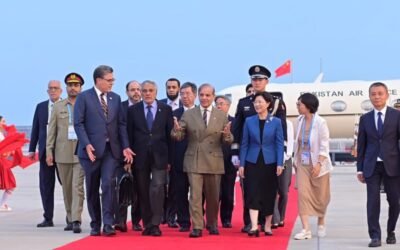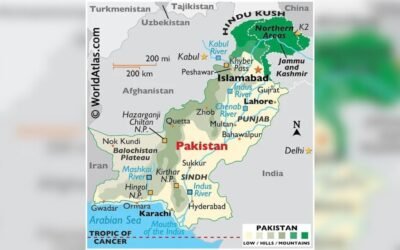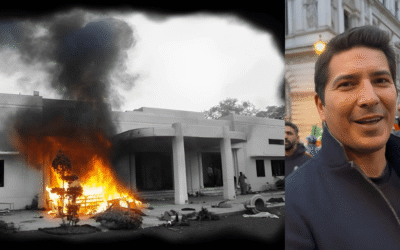Pakistan, a country with over 240 million people, has long struggled with issues in public service delivery and democratic representation at the local level. While national and provincial assemblies often take center stage in political discussions, the true potential of democracy rests in empowering local governments. These institutions are the closest to citizens and are designed to address their daily concerns. After periods of neglect and frequent dismantling, the revival of local governments across Pakistan is starting to gain momentum, with mayors and municipal leaders stepping up to deliver “power to the people.”
The Promise of Local Governance
Local governments are crucial for several reasons:
- Closest to Citizens: They are the nearest tier of government to the community, understanding local needs better than distant provincial or national bodies. This proximity enables more tailored solutions to problems such as waste management, water supply, and street maintenance.
- Agent of Change and Development: Local bodies are key drivers of development at the grassroots level. They can identify specific development priorities and allocate resources more efficiently based on local knowledge.
- Strengthening Democracy: Local democracy is fundamental to the broader democratic system. It provides a means for political socialization, where citizens directly participate in decision-making processes that affect their lives. It also serves as a training ground for future leaders in politics.
- Accountability and Transparency: Bringing government closer to the people makes it more accountable and its dealings more transparent. Citizens can more easily monitor how services are delivered and how funds are spent, helping to reduce corruption.
- Service Delivery: Local governments are responsible for providing essential services, including education, public health, water supply, sanitation, and infrastructure development, at the local level. Studies show that devolving powers can significantly increase service provision.
Challenges to Local Government in Pakistan
Despite their importance, local governments in Pakistan have a turbulent history. They have often been weakened or suspended, leading to periods without elected local representatives.
- Political Interference and Lack of Autonomy: Provincial governments have often resisted giving true power to local bodies, viewing them as rivals or tools for political control. This limits their ability to make independent decisions. Local elections are frequently delayed, undermining the democratic spirit.
- Financial Constraints: Most local governments rely heavily on funds transferred from provincial and federal governments. These transfers are often inadequate, irregular, and sometimes influenced by political considerations, leaving local bodies in a state of constant financial uncertainty. Local governments’ revenue from taxes is very low, often below 0.1% of GDP.
- Weak Institutional Capacity: Many local bodies lack trained staff and technical expertise to effectively manage tasks, implement projects, and deliver services. There’s a shortage of capacity-building programs.
- Inconsistent Legal Frameworks: Local government laws frequently change with different ruling parties, creating instability and hindering long-term planning. There’s a dire need for a constitutional amendment to dedicate a chapter to local government, ensuring its autonomy and resources.
- Limited Citizen Participation: Factors such as low literacy, lack of awareness, and socio-cultural barriers often prevent citizens from actively engaging in local decision-making, and accountability mechanisms are frequently weak.
Recent Revivals and Their Impact
Despite these hurdles, there has been a renewed push for local government elections and reforms in recent years. Landmark decisions by the higher judiciary have often compelled provinces to hold elections. Provinces such as Sindh, Khyber Pakhtunkhwa, and Balochistan have held local government elections, while Punjab and the Islamabad Capital Territory have seen reforms aimed at strengthening local bodies.
- Punjab Local Government Act 2022: This Act was introduced to simplify governance, increase effectiveness, and enhance budgetary controls for local representatives. It aimed to give local governments more resources and authority for urban development and public services.
- Increased Citizen Participation: Even in resource-constrained environments, elected local representatives empower citizens to voice their concerns and bring issues directly to the government’s attention.
Success Stories: Mayors and Municipal Champions Making Waves
Where local governments have been empowered, they have shown real impact:
- Lahore’s Success: Lahore has achieved notable success in local public administration. Its effective enforcement of local laws has led to better infrastructure development, improved public services, and greater administrative efficiency. Decentralization in Lahore has led to a more efficient distribution of resources and enhanced public service delivery.
- Union Council Level Impact: Studies have shown that increased access to development funds and expanded roles for union nazims (local mayors/heads) have significantly improved service provision at the union level within a short period. This included benefits reaching small farmers and minority groups, indicating a more inclusive development.
- Citizen Community Boards (CCBs): Reforms under General Pervez Musharraf (early 2000s) introduced CCBs to institutionalize citizen participation in local development and dispute resolution. This marked the first time bureaucrats were subordinate to elected officials at the local level. Though the system was dismantled later, it highlighted the potential for citizen involvement.
A standout example is Karachi’s current Mayor, Murtaza Wahab, who has led major efforts in urban planning and public service reforms.
The Real Impact
The impact of robust local government revivals is multi-faceted:
- Improved Service Delivery: Closer proximity to citizens allows local bodies to address specific needs more effectively, from waste management to clean water. While some studies indicate dissatisfaction due to a lack of resources, the positive impact on services such as health, education, and transportation is noted when proper resources are applied through local setups.
- Enhanced Accountability: Local governments establish stricter accountability mechanisms for public officials, making them more accountable to the people they serve.
- Political Socialization: They act as a breeding ground for future political leadership and representative institutions for underrepresented groups, including women and minorities. They facilitate greater political participation at the grassroots level.
- Reduced Poverty and Inequality: By addressing local needs directly and promoting more equitable resource allocation, effective local governance can contribute to poverty reduction and reduce social imbalances.
- Urban Development: With rapid urbanization, efficient local governments are more critical than ever for managing urban growth, infrastructure, and public services.
The Way Forward
To truly harness the “power to the people” through local government, Pakistan needs:
- Constitutional Safeguards: Amend the constitution to guarantee regular local elections and clearly define the authority and financial resources of local bodies, with the Supreme Court ensuring compliance.
- Financial Devolution: Grant local governments control over their revenue sources (like property taxes and municipal fees) and ensure a fair, adequate share of national revenue.
- Capacity Building: Invest in training and professional development for local government officials and elected representatives to enhance their administrative and technical skills.
- Citizen Engagement: Institutionalize public participation through citizen juries, community boards, and participatory budgeting to make governance more inclusive and responsive.
- Digitization: Implement digital systems at local levels for transparency in administration, service delivery, and financial management.
The revival of local governments offers a powerful pathway to a more democratic, accountable, and prosperous Pakistan. By empowering mayors and municipal champions, the country can move towards a future where governance truly serves the needs of its people at every doorstep.
References:
- Accountability Lab Pakistan. (2024, March 14). Local governments in Pakistan: Historical evolution and the way forward.
- AHSS. (n.d.). Implications of Pervez Musharraf’s decentralization of power agenda to transform bureaucratic system of Pakistan.
- Dawn. (2025, May 16). Civil service reforms cannot succeed without local government empowerment. Here’s why.
- GSDRC. (n.d.). Governance, decentralisation and poverty: The case of Pakistan.
- Howtests. (n.d.). Navigating the labyrinth: Challenges in implementing effective local governance in Pakistan.
- Husain, I. (n.d.). Adapting public sector services to local delivery.
- IDEA Publishers Group. (2022, June 22). The role of local governments in the political and socio-economic development of Pakistan.
- Local Government and Community Development, Government of Punjab. (n.d.). Functions.
- MIT Press Direct. (2024, February 1). Local government reforms in Pakistan: Context, content, and causes.
- Pakistan Social Sciences Review (PSSR). (2020, September 30). Effectiveness of local government systems, pro-poor budgeting, and policies for marginalized communities.
- ResearchGate. (n.d.). Role of local government in improving public service delivery in Punjab: A comparative study of district Lahore and Kasur.
- ResearchGate. (2024, January 29). The impact of local government on service delivery: A case study of Islamabad (Thesis).
- Rural Support Programmes Network. (n.d.). Challenges to citizen-driven local governance: Lessons from Pakistan.
- UNDP Pakistan. (2014, January 1). A new way forward for local governance in Pakistan?.
- University of the Punjab. (2016, December 8). Decentralization and local government structures.







